The East India Company sold Kashmir in 1846, notwithstanding, a section of British politics was always concerned for Kashmir. Though London was too distant from Srinagar but within days after the July 13 massacre in 1931, the concern surged. Here is what happened in the House of Commons debates in the subsequent days.
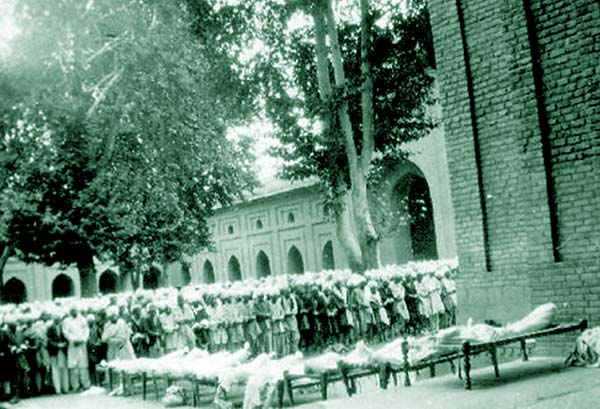
Funeral prayers being offered to the martyrs of July 13, 1931 massacre in the compound of Jamia Masjid Srinagar
July 27, 1931
Mr Remer asked the Secretary of State for India if he can make any statement as to the communal riot which occurred at Srinagar, in Cashmere, on 13th July; if he can state how many lives were lost in this riot; and if he can make any statement as to the cause of the riot?
Mr Benn: Such information as has reached me does not add anything material to the reports that have appeared in the Press. I understand that His Highness the Maharaja of Kashmir has appointed a committee to inquire into the causes and circumstances of the disturbances and to make recommendations with a view to restoring good relations between the communities.
Mr Remer: Can the right Hon Gentleman say how many lives were lost in the riot?
Mr Benn: I have said that I have no information materially greater than that which has appeared in the newspapers.
September 21, 1931
Colonel Howard Bury asked the Secretary of State for India (1) whether he has any information with regard to the disturbances that took place in Kashmir on various occasions during July and August; what were the causes that led to those disturbances; and what were the casualties and damage to property; (2) whether the commission of inquiry which is being constituted with regard to the cause of the disturbances in Kashmir has any non-official Moslems among their number, seeing that 95 per cent. of the population are Moslems; and, if not, whether he will see that Moslem representatives are included?
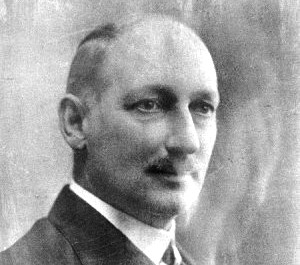
Lieutenant Colonel Charles Kenneth Howard-Bury (1881-1963)
Sir S Hoare: I have nothing to add to the reply given on 27th July to my Hon Friend the Member for Macclesfield (Mr Remer).
Colonel Howard Bury: Can my right Hon Friend say whether either he or the Viceroy has taken any action to promote good feeling in Kashmir?
Sir S Hoare: My Hon and gallant Friend will see that it is very difficult for me to give an answer to a question of that kind which affects the concerns of an Indian State, but I can tell him that the Government of India and the India Office are watching very closely the matter to which he calls my attention.
September 24, 1931
Major Pole asked the Secretary of State for India whether any action has been taken by the Government of India or the local governments to deal with persons responsible for the circulation of inaccurate stories in British India calculated to excite popular feeling among certain sections of the population against the ruling house of Jammu and Kashmir?
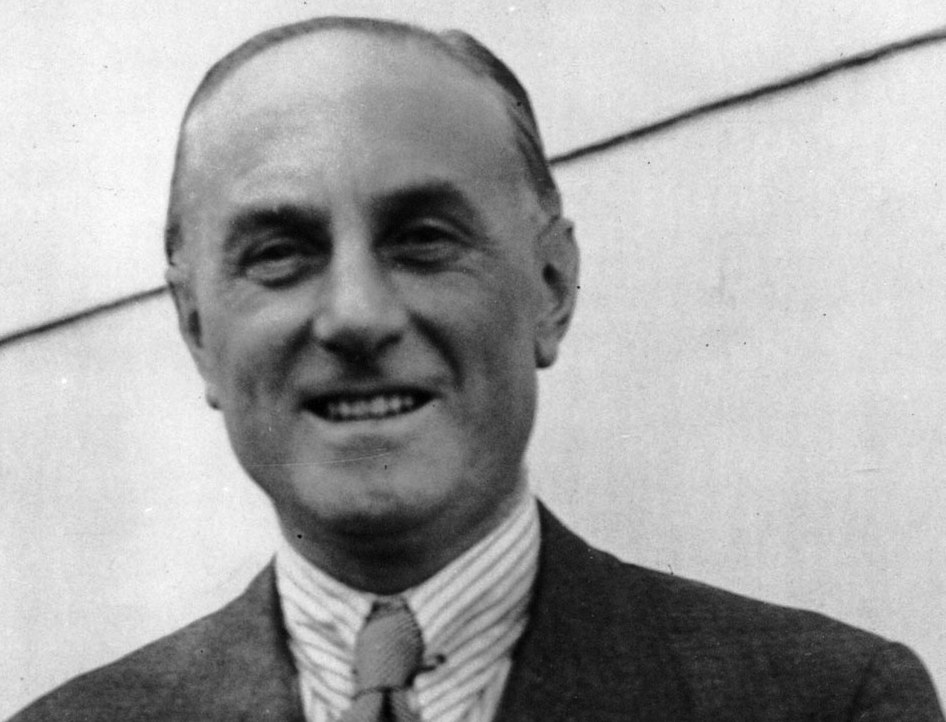
Sir Samuel Hoare (Feb 1880 – May 1959)
Sir S Hoare: Owing to the agitation referred to, it has been found necessary to prohibit processions in Sialkot, a town on the border of Jammu. No other special action taken in connection with this agitation has been reported to me, but, as the Hon and gallant Member is no doubt aware, the circulation of inaccurate and tendencious reports regarding the affairs of an Indian State might render their authors liable to prosecution.
September 28, 1931
Colonel Howard Bury asked the Secretary of State for India whether he has any information with regard to the riots in Kashmir on Wednesday, in which a number of Moslems were killed and wounded; and whether he will make representations to the Hindu Government of Kashmir urging them to abolish the penal laws against Moslems and thus remove the causes that have given rise to this and previous rioting, which has caused loss of life?
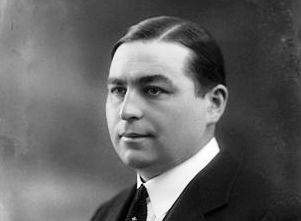
Joseph Montague Kenworthy (March 1886 – October 1953)
Lieut-Commander Kenworthy asked the Secretary of State for India the circumstances of the present non-communal rising in Kashmir directed against the ruling dynasty; and what steps are being taken to prevent outside interference from British India or other countries with the internal affairs of this State?
Lieut-Commander Kenworthy: On a point of Order. I believe that it is a Rule of this House that Hon Members must make themselves responsible for the statements in their questions. May I draw your attention, Mr Speaker, to the fourth line of the Hon and gallant Member’s question, in which reference is made to “penal laws against Moslems As this is entirely inaccurate, may I ask you if the question is in order?
Colonel Howard Bury: On that point of Order. May I be allowed to say that the question is perfectly accurate, seeing that Moslems get seven years’ imprisonment if they kill a cow?
Mr Speaker: I am afraid I cannot take any responsibility as to the accuracy or otherwise of what is stated in the question.
Sir S Hoare: The facts of the recent regrettable disturbances in Kashmir have been reported in the Press. I understand that the situation was somewhat eased by the peaceable dispersion of the large crowd which had collected on Thursday evening. A further outbreak entailing loss of life is reported to have occurred on Saturday at Shupian, 30 miles south of Srinagar. The Government of India is, of course, in close touch with the situation. As regards the second part of question Number 8, I would refer the Hon and gallant Gentleman to the answer which I gave on the 24th September to the question of the Hon and gallant Member for South Derbyshire (Major Pole).
Colonel Howard Bury: Will not the right Hon Gentleman have an impartial inquiry made, under the authority of the Viceroy, into the serious and longstanding grievances of the Kashmiri Moslems?
Sir S Hoare: I must not give an answer to that question. We are dealing with the affairs of the State of an Indian Prince, and it would not be in my power to give an answer to the hon. and gallant Member’s question. I can assure him, however, that we are following the matter with very close attention.
Lieut-Commander Kenworthy: With regard to the second part of my question, as to the prevention of outside interference with the internal affairs of this State, may I ask the right Hon Gentleman if he is not only watching the matter as regards British India, but whether our representative in Kabul has been asked to watch the situation?
Sir S Hoare: The Hon and gallant Member may rest assured that we are watching the question from every angle. We realise that it is a very important question.
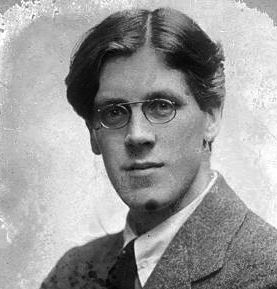
Archibald Fenner Brockway (November 1888 – April 1988)
Mr Brockway: Arising out of the original answer, may I ask whether it is not a fact that the State of Kashmir has been remarkably free from these Moslem-Hindu conflicts?
Mr Speaker: That does not arise out of these questions.
October 5, 1931
Colonel Howard Bury asked the Secretary of State for India whether he has any further information with regard to the situation in Kashmir; and whether an impartial inquiry is to be held with regard to the cause of the recent outbreaks and loss of life there?
Sir S Hoare: So far as I am aware no further disturbances have occurred in Kashmir during the past week. I have not yet been informed whether arrangements have been made to investigate the causes of the recent outbreaks.
Colonel Howard Bury: Is my right Hon Friend aware that the situation there is very serious indeed? Will he not do his best to have an impartial inquiry into these cases?
Sir S Hoare: We are in very close touch with the situation. We have a Resident in Kashmir, and I can assure my Hon and gallant Friend that we are watching the course of events very carefully.
November 16, 1931
Brigadier-General Clifton Brown asked the Secretary of State for India what are the British forces now being employed for the protection of Kashmir State; and whether they are being paid for by the State or are a charge on the Government of India revenue?
Colonel Wedgwood asked the Secretary of State for India whether he can give any information as to the present state of military matters in Kashmir, and as to whether the cost of the expedition will be met from the revenues of British India or Kashmir?
Mr Marjoribanks asked the Secretary of State for India what British troops have been used to maintain order in the recent disturbances in Kashmir; whether it is proposed to reinforce such troops; and upon whom the cost of their maintenance will fall?
The Secretary of State for India (Sir Samuel Hoare): The British troops at present employed in Kashmir State consist of two battalions and one Company of Infantry and a detachment of Cavalry. So far as I am aware, it is not proposed at present to send any further troops. The State will be asked to bear all expenditure above the normal cost of maintenance of the troops.
Colonel Wedgwood: Can the right Hon Gentleman say whether advantage will be taken of the position between ourselves and Kashmir to secure a beginning of some form of democratic government in that State?
Mr Speaker: I am afraid that matter does not arise out of the question.
November 17, 1931
Sir C Oman asked the Secretary of State for India whether the official despatched by the Government of India to Kashmir to investigate the condition of that State has any authority to intervene in cases of maladministration or only to report to the Government at Delhi?
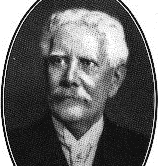
Sir Charles William Chadwick Oman (January 1860 – June 1946)
Sir Victor Warrender (Lord of the Treasury): I have been asked to reply. My Hon Friend’s question contains a misapprehension which has already appeared in the Press and which my right hon. Friend welcomes the opportunity to remove. The services of the official referred to, Mr BJ Clancy, have been lent to the Kashmir Darbar by the Government of India at the Darbar’s own request. He has been appointed by the Darbar to preside over a commission which will inquire into the grievances of the Moslem subjects of the State, and will submit its report together with its recommendations to His Highness the Maharaja, not to the Government of India. The commission consists of four members, nominated by the Moslem and non-Moslem communities of Srinagar and Jammu. Their names are being circulated in the official report. His Highness has also obtained the loan of the services of Mr L Middleton, ICS, and has appointed him to inquire into the causes of the disturbances of last September and the measures taken for the suppression thereof.
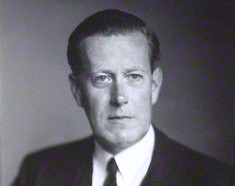
Victor Alexander George Anthony Warrender, (June 1899 – January 1993)
Colonel Wedgwood: Are we to understand that this report will not be made public, or will it be published, so that we can have a copy of it here?
Sir Victor Warrender: I should like to have notice of that question.
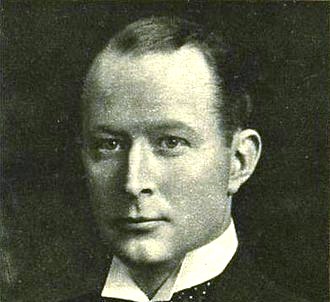
Sir Joseph Nall, (August 1887 – May 1958)
Sir J Nall: Is it not a fact that, as stated in the Times newspaper, the whole of this trouble in Kashmir is due to the replacement of British officials by Indians?
Following are the names: The names of the members are Ghulam Ahmad Ashai, Premnath Bazaz, Chaudhri Ghulam Abbas and Pundit Lokhnath Sharma.
November 23, 1931
Major Despencer Robertson asked the Secretary of State for India whether he is aware that British subjects are debarred from owning land in the State of Kashmir, although this right is possessed by Kashmiri subjects in India, and that in several recent cases British subjects have been arbitrarily deprived of lands which they had leased; and whether negotiations can be commenced for the purpose of ensuring that British subjects resident in, or carrying on their business in, Kashmir, shall enjoy all such privileges as are granted to Kashmiri subjects resident in British India?
The Secretary of State for India (Sir Samuel Hoare): So far as I am aware, it is the case that the Kashmir State does not permit the ownership of land by British subjects. I have not received any recent reports of hardship being caused to British subjects as a result of this law which would justify Government in making representations to His Highness the Maharaja.
Major Despencer Robertson: Is my right Hon Friend aware that the question does not actually concern the ownership of land, but the leasing of land as well?
Sir S Hoare: As regards the leasing a land, I think that is allowed, but I shall be glad if my Hon and gallant Friend will send me any particulars that he has in mind.
November 23, 1931
Colonel Wedgwood asked the Secretary of State for India whether the persons, or either of them, inquiring into the state of affairs in Kashmir are expected to report on the rival merits of autocracy and responsible government for that state; and whether any report made by these gentlemen will be made public?
Sir S Hoare: No, Sir. His Highness the Maharaja has, however, announced that on the completion of the present inquiries it is his intention to convene a conference over which Mr Glancy will preside and at which the various sections of his subjects will be represented, for the purpose of discussing the most suitable means of introducing constitutional developments in the State. The results of the present inquiries will be reported to His Highness. I do not know whether it is his intention to publish the reports.
Colonel Wedgwood: Seeing that His Highness is being protected by the British, will the British Government or the Government of India be represented in any way at that inquiry?
Sir S Hoare: If my right Hon and gallant Friend will look at the answer that I gave last week, he will see that I gave particulars about the two inquiries. I can add nothing to the information that I then gave.
Colonel Wedgwood: But in the answer given last week it was clearly stated that the British Government took no part in that inquiry. May I ask whether this further inquiry held by the Maharaja into the possibility of responsible government in Kashmir will be attended by any representatives of the Government of India?
Sir S Hoare: The answer is No, Sir. This is an inquiry instituted by His Highness.
Colonel Wedgwood: Are the Government of India not interested in the Government of Kashmir?
Sir S Hoare: Naturally, we are very interested in a great many things, but this is not an occasion on which we can intervene.
November 30, 1931
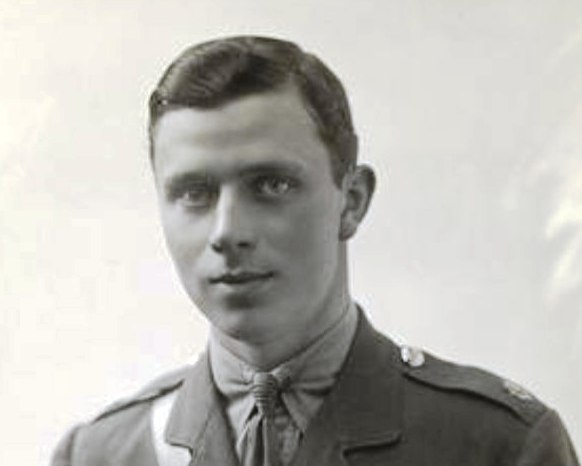
Colonel Victor Alexander Cazalet (December 1896 – July 1943)
Captain Cazalet asked the Secretary of State for India whether his attention has been called to the occurrence of public floggings in Kashmir; whether such practices are permitted by the Government of Kashmir; and what action the Government of India proposes to take in the matter?
Sir S Hoare: I have seen reports in the Press that the punishment of flogging was inflicted in a number of eases under the authority, it is understood, of an Ordinance issued by His Highness the Maharaja of Kashmir on the 24th September. The measures taken to suppress the recent disturbances are included in the subjects of the impartial inquiry which His Highness has entrusted to Mr Middleton, Indian Civil Service. His report will be made to the Kashmir Government.
Captain Cazalet: Has the Indian Government any right in action of this kind to interfere with a State or not?
Sir S Hoare: I should like notice of that question, but my answer at first sight would be no.
November 30, 1931
Mr Hannon asked the Secretary of State for India whether he is aware that the findings of the Dalal Commission which recently inquired into the disturbances in Kashmir have failed to satisfy the Moslem community in that State; and if the commission now presided over by Mr Middleton will make a further report upon matters considered by the Dalal Commission?
Sir S Hoare: I have seen Press reports to the effect stated in the first part of the question. The inquiry entrusted by His Highness the Maharaja to Mr Middleton is concerned with the period subsequent to that covered by the report of the Dalal Committee.
Mr Hannon: Will any step be taken to mollify the bitter feeling among the Moslem community in Kashmir? Can the Middleton Commission do anything to ease the wounds which have been opened?
Sir S Hoare: It is for that very object that the commission was appointed. Every possible step is being taken to allay those feelings of discontent.
November 30, 1931
Mr A Bevan asked the Secretary of State for India if he is in a position to make a statement regarding the present position in Kashmir?
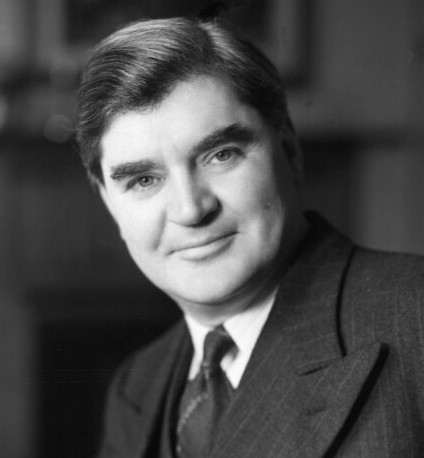
Aneurin Bevan (November 1897 – July 1960)
Sir S Hoare: I do not know that I can usefully add anything to the reports which have been appearing in the Press. But I will send the Hon Member a copy of the announcement of action which is being taken by the Kashmir Government.
December 7, 1931
Mr A Bevan asked the Secretary of State for India if he is in a position to make a statement regarding the present position in Kashmir?
Sir S Hoare: I have nothing to add to the reply which I gave to a similar question by the hon. Member last week.
December 10, 1931
Mr Rhys Davies asked the Secretary of State for India whether he can make any statement as to the present position in Kashmir?
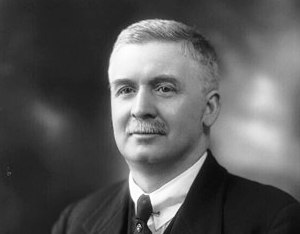
Rhys John Davies (April 1877 – October 1954)
Sir S Hoare: I have nothing to add to the reply which I gave on 30th November to a similar question by the hon. Member for Ebbw Vale (Mr A Bevan).
February 8, 1932
Mr Rhys Davies asked the Secretary of State for India the present position in respect to the recent political disturbances in Kashmir?
The Secretary of State for India (Sir Samuel Hoare): A series of outbreaks including looting and arson have occurred in the south-west of Kashmir. To assist the State authorities in the restoration of order the Government of India, at the request of the Darbar, have sent a battalion of British infantry with a squadron of cavalry to Mirpur, where they arrived on 30th January. One company of Indian troops has also been despatched, and various aeroplane reconnaissances have been carried out. The Government of India remain in close touch with the State authorities.
Mr Maxton: Can the right Hon Gentleman say whether the Cabinet was united on this matter?
Sir S Hoare: Yes, Sir.
February 22, 1932
Mr D Grenfell asked the Secretary of State for India the present position in respect of the disturbed conditions in Kashmir?
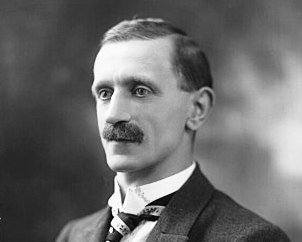
David Rhys Grenfell (June 1881 – November 1968)
Sir S Hoare: My latest information indicates that the improvement in the situation continues and that order is gradually being restored in the outlying districts of the area affected. Kashmir Province itself is reported quiet.
Mr Hannon asked the Secretary of State for India whether he can state the probable date of the presentation of the report of the Committee appointed to inquire into the grievances of Moslems in the Kashmir State?
Sir S Hoare: I understand that it is hoped that the Commission will be able to submit its report to His Highness the Maharaja early next month.
May 3, 1932
Colonel Wedgwood asked the Secretary of State for India whether he was consulted as to the action to be taken on the Glaney Report on Kashmir; and whether that report will be issued for the information of this House?
Sir S Hoare: The answer to the first part of the question is in the negative. I will place a copy of the report in the Library as soon as it reaches me.
10 July 1933
Lieut.-Colonel Applin asked the Secretary of State for India how far the recommendations of Mr Glancy, the British Commissioner in Kashmir, have been carried out with regard to the redress of Muslim grievances and the establishment of an assembly, respectively?
Mr Butler: The orders passed by the Government of His Highness the Maharaja on the recommendations of the Glancy Commission to inquire into grievances and complaints shortly after the publication of their report were summarised in the Press during April, 1932. It was also announced that the report of the Kashmir Constitutional Reforms Conference, presided over by Mr Glancy, was receiving the earnest consideration of His Highness’s Government and that, as a first step, they appointed in May. 1932, a Franchise Committee to examine the portions of the report relating to franchise and questions of qualification for a vote.
Lieut.-Colonel Applin asked the Secretary of State for India (1) on what grounds S. M. Abdulla, president of the All-Jammu-Kashmir Muslim Conference, has been arrested; and what is the specific charge against him;(2) whether he is aware that S. Zainul Abidin, a representative of the Ahmadiyya community, who went to Kashmir to see the Prime Minister on their behalf, has been externed from the state; and what were the circumstances that led to this action?
Mr Butler: I understand that a breach of the peace which occurred between two sections of the Moslem community in Srinagar on the 25th May led to such disturbances that on the 30th May the Government of His Highness the Maharaja in order to preserve the public peace and to remove the danger which was threatening the lives and properties of Muslims decided to arrest S M Abdulla and seven others. I have no information as to the externment of S Zainul Abidin from the State.
Lieut.-Colonel Applin: Will the hon. Gentleman make inquiries as to this matter; and, if he has any further information, will he communicate it in due course?
Mr Butler: If I have any information I shall be glad to impart it to my hon. and gallant Friend.
The post A Massacre Debate appeared first on Kashmir Life.
from Kashmir Life https://ift.tt/39NiflT
via IFTTThttps://kashmirlife.net
No comments:
Post a Comment